Albums of the week: Spare Ribs, Joseph Haydn, Magic Mirror
New releases from Sleaford Mods, Maxwell Quartet, and Pearl Charles
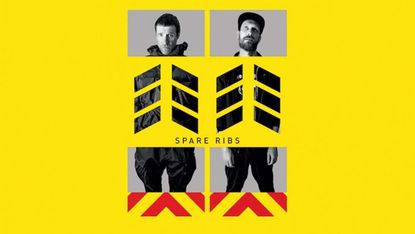
This week’s three new releases are the latest albums by Sleaford Mods, the Maxwell Quartet, and Pearl Charles.
Spare Ribs by Sleaford Mods is a “cutting, witty and maudlin portrait” of pandemic Britain and lockdown paranoia.
The Maxwell Quartet’s second offering devoted to the composer Joseph Haydn is a “wonderful album” with “intoxicating arrangements”.
Subscribe to The Week
Escape your echo chamber. Get the facts behind the news, plus analysis from multiple perspectives.

Sign up for The Week's Free Newsletters
From our morning news briefing to a weekly Good News Newsletter, get the best of The Week delivered directly to your inbox.
From our morning news briefing to a weekly Good News Newsletter, get the best of The Week delivered directly to your inbox.
And Pearl Charles’s Magic Mirror combines “razor-sharp lyrics, confiding, crystalline vocals and nods to classic country rock and soft pop”.
1. Spare Ribs
Sleaford Mods
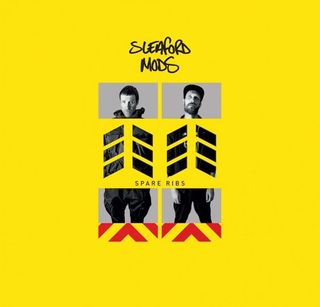
Are Sleaford Mods the most influential band in Britain? When the electro punk duo first surfaced in 2007, said Neil McCormick in The Daily Telegraph, their spoken word invective over punchy dance-style backing – somewhere between “punk rap and grime rock” – sounded singular, “awkward” even. Now, the “thrilling contemporary indie scene” is awash with the same “declamatory” dynamic (albeit with added guitars). And yet the “middle-aged Mods” still stand out from the young crowd, and they are at the top of their “sweary, punky, bilious” game. This “dazzling” new album is among their best.
“Having set out their stall as absurdist chroniclers of the British grotesque, Jason Williamson and Andrew Fearn had their work cut out in 2020,” said Will Hodgkinson in The Times. Spare Ribs has a greater emphasis on melody and “singalong tunes” than their previous albums, but the basic ranty formula is the same: Spare Ribs is a “cutting, witty and maudlin portrait” of pandemic Britain and lockdown paranoia; and it’s “captivating”.
2. Joseph Haydn, String Quartets Op. 74 & Folk Music from Scotland
Maxwell Quartet
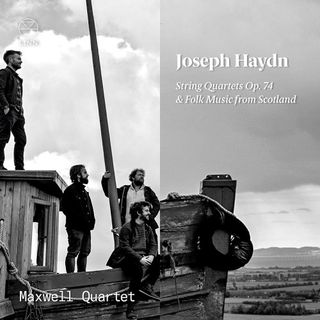
“Every winter day, I’ve decided, requires a dose of Haydn,” said Geoff Brown in The Times. “He’s music’s vitamin C.” This wonderful album, the Maxwell Quartet’s second offering devoted to the composer, slips “intoxicating arrangements” of Scottish reels, fiddle dances and pipe tunes in between Haydn’s three Op. 74 string quartets. But even without the folk injections, the disc would be “remarkable for the joy and energy” of these Scottish musicians; they prove “ideal interpreters of Haydn’s mischievous jokes, sudden mood swings and lyrical ingenuity”. The “prize peach” is the G minor quartet (known as the Rider for its galloping finale). But the whole thing sparkles and cheers.
There’s a “tangible compatibility” between Haydn’s snappy Viennese classicism and the rustic verve of the Scottish dances, said Ken Walton in The Scotsman. The performances here are paragons of “stylistic finesse, the Maxwell’s precision complemented by moments of aching tenderness”. “The quirky Scots stuff is the icing on the cake.”
3. Magic Mirror
Pearl Charles
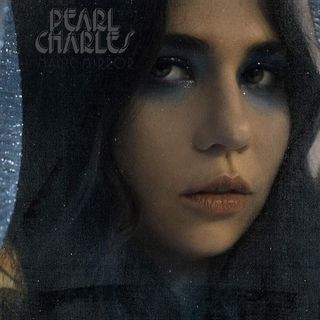
Pearl Charles is a singer-songwriter from California with an intriguing backstory, said Dan Cairns in The Sunday Times. At 18 she formed a country duo with Christian Lee Hutson, the artist responsible for last year’s wonderful album Beginners. A few years later, she switched genres, and became the drummer in a garage-rock band. “Happily for us, her decision to go it alone is bearing luscious fruit.” Her new album, Magic Mirror, combines “razor-sharp lyrics, confiding, crystalline vocals and nods to classic country rock and soft pop, with results that are ensnaring and bewitching”.
Charles’s “retro” sonic palette is heavily influenced by the “sun-drenched sounds of 1960s and 1970s California”, said Roisin O’Connor in The Independent. On this “impressive, mature” collection, she incorporates “bright, cosmic synths”, buoyant instrumentation and classic rock motifs, along with “brilliant, subtle flexes of country slide guitar”. And while she toys with setbacks and self-doubt in her lyrics, the album has an overriding sense of optimism and “heady abandon”.
Create an account with the same email registered to your subscription to unlock access.
Sign up for Today's Best Articles in your inbox
A free daily email with the biggest news stories of the day – and the best features from TheWeek.com
-
 'Republicans want to silence Israel's opponents'
'Republicans want to silence Israel's opponents'Instant Opinion Opinion, comment and editorials of the day
By Harold Maass, The Week US Published
-
 Poland, Germany nab alleged anti-Ukraine spies
Poland, Germany nab alleged anti-Ukraine spiesSpeed Read A man was arrested over a supposed Russian plot to kill Ukrainian President Zelenskyy
By Peter Weber, The Week US Published
-
 Today's political cartoons - April 19, 2024
Today's political cartoons - April 19, 2024Cartoons Friday's cartoons - priority delivery, USPS on fire, and more
By The Week US Published
-
 The Westbury Hotel review: stunning suites in charming Dublin
The Westbury Hotel review: stunning suites in charming DublinThe Week Recommends This hotel is the perfect spot to while away a weekend in Ireland's capital
By Kaye O'Doherty Published
-
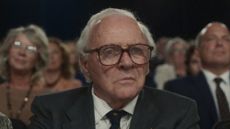 Drama movies 2024: new films out this year
Drama movies 2024: new films out this yearIn Depth Latest reviews include The Boys in the Boat, One Life and Tchaikovsky's Wife
By The Week UK Last updated
-
 Best new hotels and places to stay in 2024
Best new hotels and places to stay in 2024The Week Recommends Featuring stylish island resorts, historical properties and wilderness retreats
By The Week UK Last updated
-
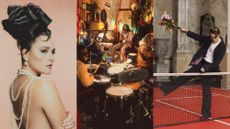 Albums of the year: best music of 2023
Albums of the year: best music of 2023The Week Recommends A look back at the best pop, rap, jazz, dance, classical and rock releases
By The Week UK Published
-
 Savoy Grill by Gordon Ramsay review: an institution reinvented
Savoy Grill by Gordon Ramsay review: an institution reinventedThe Week Recommends Traditions are maintained and the tweaks are clever and modern
By Neil Davey Published
-
 Tulum: a Mexican beach town of 'two halves'
Tulum: a Mexican beach town of 'two halves'The Week Recommends With the 'pueblo' and 'Zona Hotelera', Tulum is home to great hotels, restaurants and beach clubs
By William Leigh Published
-
 La Zebra review: beach chic, perfect tacos and secret cenotes
La Zebra review: beach chic, perfect tacos and secret cenotesThe Week Recommends Enjoy a stylish stay in Mexico at this family-friendly beach hotel and restaurant
By William Leigh Published
-
 Atlantis Paradise Island Bahamas review: a mythical beachside resort
Atlantis Paradise Island Bahamas review: a mythical beachside resortThe Week Recommends Combine the classically simple pleasures of sun, sea and sand with upmarket fun and food
By Adrienne Wyper Published